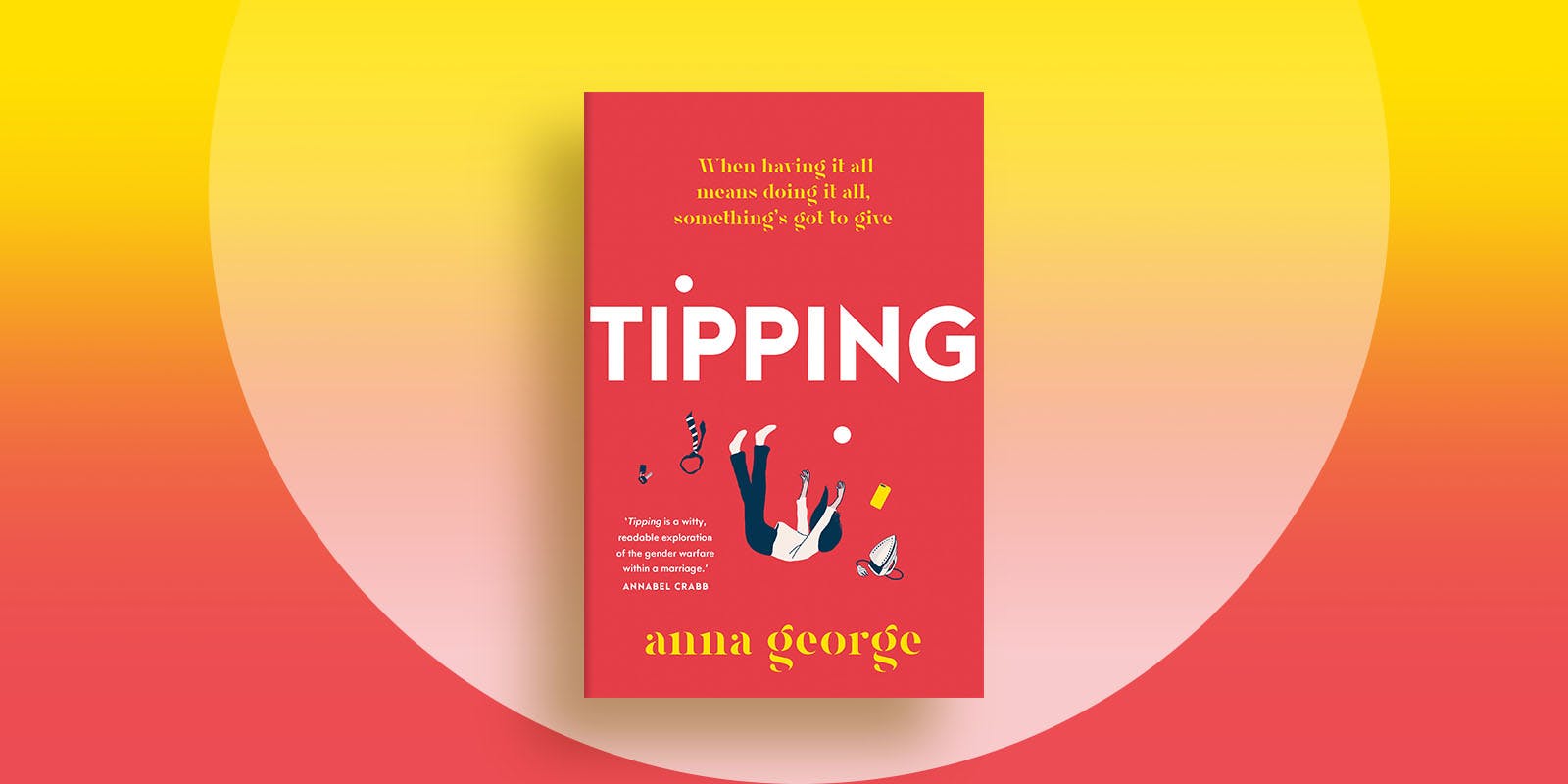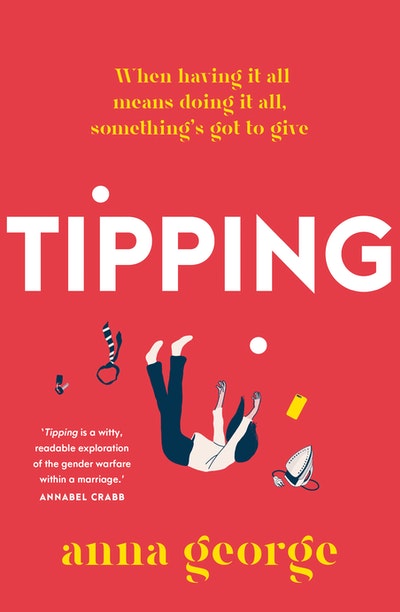A light-hearted and optimistic pick for book club.
Described by Annabel Crabb as 'a witty, readable exploration of the gender warfare within a marriage', Tipping gives readers lots to ponder. Use the questions below to get the discussion started at your next book club meeting.
Discussion points and questions:
- Tipping begins with Liv locked in her car but ends with her squarely in the driver’s seat in her life. Do you think we are more, or less, in control of our lives than we realise?
- Early on in Tipping, Liv feels as if she suddenly has women’s vision, where she can see sexism lurking everywhere in her life. And she has to do something about what she sees. Has this ever happened to you? Were you motivated to do something about it? What did you do? What would you like to do now?
- Liv begins a series of key, small changes to her and her family’s life by making a list of chores and delegating. Should we all have a go at introducing tweaks to create more calm or balance or even excitement in our life?
- Tipping explores the traditional roles of men and women in a marriage, from both the husband and the wife’s points of view. Why do you think the author chose to explore both of these points of view in Tipping? How similar ultimately were Liv and Duncan’s frustrations with the roles they were expected to fulfil? Did one of them really have it any better, or easier, than the other?
- What more did Jess’s point of view add to this aspect of the story?
- The teenagers in Tipping are grappling with what is expected of them - whether that’s to be slim and sexy or a jock rather than a cook. Do you think boys and girls have an equally tricky time during adolescence navigating their way through society’s expectations of them? Or are boys, as Jess initially thinks, ’so much easier’ to raise than girls… and 'much less complicated’? Has any of this changed since you were a teenager – are the pretty girls and sporty boys still the popular ones?
- Various biases are at play in Tipping. What are they and which ones can you relate to? Have you been confronted by other people’s biases; have you challenged them? How? Are you aware of any of your own biases? What do you do to manage or minimise them?
- Tipping is concerned with how ideas, mood and even behaviour can be contagious and spread like wildfire. What are some of the elements in Tipping that sparked and spread? What have you observed, over the years, that caught on in your world and spread wildly? (From mullets and doing the moonwalk, to certain books and standing up to sexual harassment?) What do you think caused these things to catch on?
- Anna George has tried to write a joyful and optimistic story about what’s possible. How did reading Tipping make you feel?
- Will you be recommending Tipping to your friends? If so, what will you say is the most inspiring aspect of the book? What resonated most for you, and why?













